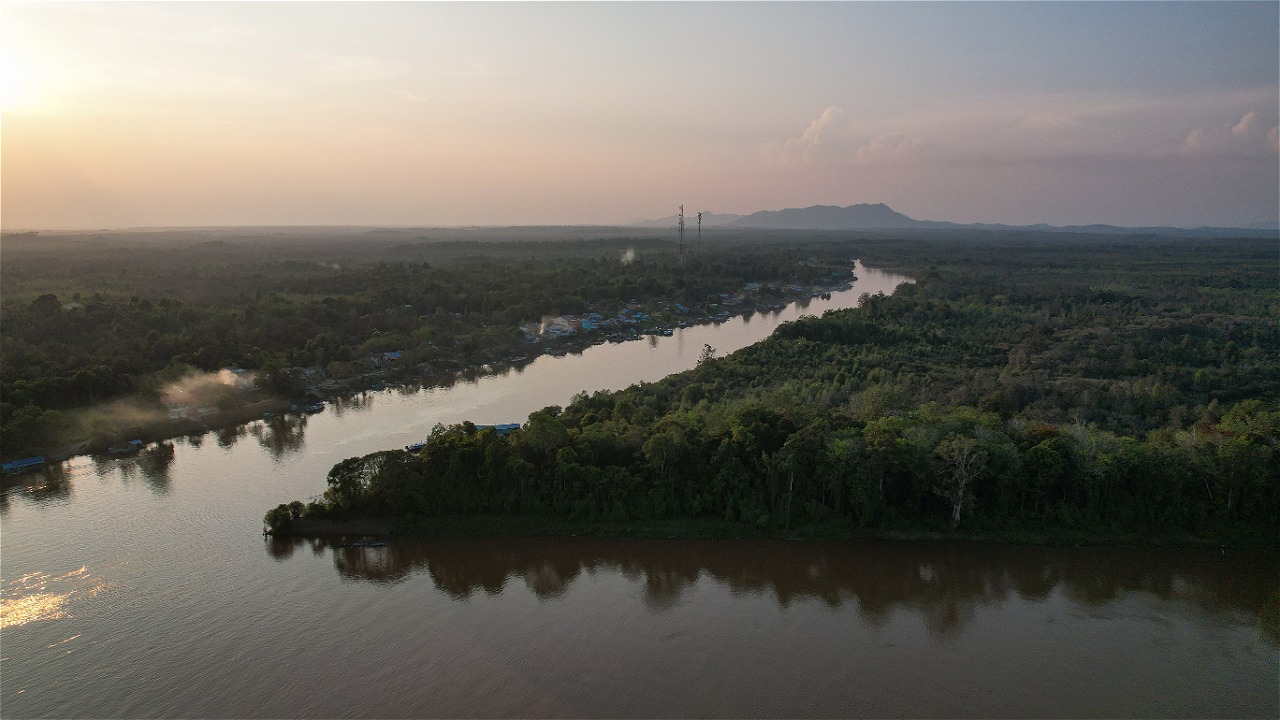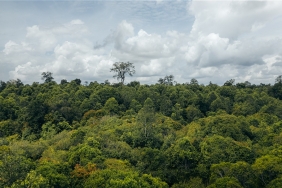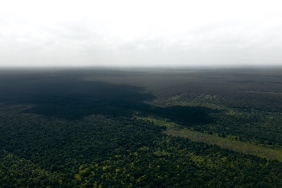MANAGING COMMUNITY-BASED ECOTOURISM IN WEST KALIMANTAN
PUTUSSIBAU--A number of parties have agreed to manage community-based ecotourism management in Melemba Village, Batang Lupar District, Kapuas Hulu Regency, West Kalimantan. This effort is part of tourism development that utilizes the potential of environmental services in the national park area.
The memorandum of understanding was signed by WWF-Indonesia West Kalimantan Program, Kapuas Hulu Culture and Tourism Office, Danau Sentarum National Park (TNDS), Kapuas Hulu Model Forest Management Unit (KPH), and Melemba Village Government in Putussibau on Thursday (25/6/2015).
Head of Kapuas Hulu's Disbudpar, Antonius, said that his office had finalized the Roadmap Document for the Development of Ecotourism Areas in Kapuas Hulu District in 2014. "This collaborative effort is one form of implementation for the real development of ecotourism in Kapuas Hulu," he said in Putussibau, Thursday (26/6/2015).
According to Antonius, the management operator will be the Melemba Village community, which is encouraged through the Village-Owned Enterprises (BUMDes) approach. This is one of the sustainable and responsible forest management systems.
Furthermore, Antonius said, this memorandum of understanding is expected to be an asset for the Melemba Village community in having access to better ecotourism management. In addition, through this understanding, the development of ecotourism in Melemba Village is expected to accelerate the steps towards the District Strategic Area (KSK) for ecotourism development.
Head of the TNDS Center, Sahdin Zunaidi said the Kapuas Hulu Regency Government had established a KSK in the corridor between Betung Kerihun National Park (TNBK) and TNDS. "This is a strategic area to protect the function and carrying capacity of the environment. TNDS strongly supports and strengthens this commitment to realize better ecotourism, especially in the TNDS management area," he said.
Meanwhile, Head of KPH Kapuas Hulu Model, Welli Azwar said 59 percent of the forest area managed by the Melemba Village community is the working area of KPH Kapuas Hulu. "By implementing sustainable forest management in the KPH area, it will have a positive impact where the forest can produce Non-Timber Forest Products (NTFPs) such as honey, rattan, and bamboo," he said.
Through this memorandum of understanding, the parties are expected to be more solid in supporting and sharing roles for the development of ecotourism in Melemba. WWF-Indonesia will continue to encourage the concept of the ongoing environmental services certification scheme in order to obtain environmental services certification based on sustainable forest management.
"In the scope of island conservation linked to the existence of the HoB (Heart of Borneo), this collaborative effort can be seen as the implementation of programs at the district level. This leads to the realization of an equitable environmental services scheme through the concept of environmental services certification, especially in Meliau Hamlet, Melemba Village, in order to obtain environmental services certification based on sustainable forest management, "explained Albertus Tjiu, West Kalimantan Program Manager of WWF-Indonesia.
In the end, this memorandum of understanding can provide more benefits, as well as provide an illustration of how area management can be carried out jointly with the community around the forest, and carried out sustainably and responsibly by prioritizing ecological and economic principles.
For more information, please contact:
Darmawan
Head of Tourism, Kapuas Hulu Culture and Tourism Office
HP: 081254137123
Email: aldo.faturahman@yahoo.com
Angga Prathama Putra
Payment for Ecosystem Services (PES) and Standard Development Coordinator (GFTN) WWF-Indonesia Foundation
Phone. +62 811 5230098
Email: aputra@wwf.or.id





